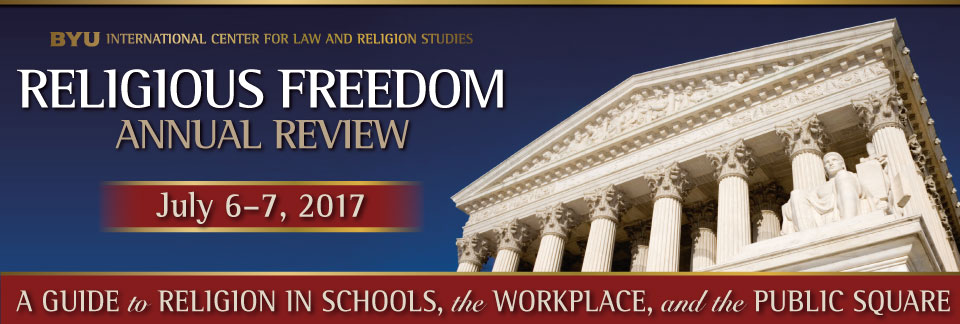2017 Religious Freedom Annual Review: Interviews, News Coverage
-
Presenters
Video and audio recordings
Schedule-at-a-glance
BYU Radio interview with Senator Flake
BYU Radio interview with Helen Easterling Williams
BYU Radio interview with Asma Uddin
Deseret News coverage - Day 1
Deseret News coverage - Day 2
Additional Deseret news coverage
Daily Herald coverage
Salt Lake Tribune coverage
WakeUp We the People 7/10/2017 Podcast

The 2017 Religious Freedom Annual Review, hosted by the International Center for Law and Religion Studies (ICLRS) of BYU Law School, took place 6-7 July 2017 at the Conference Center on the campus of Brigham Young University.
Watch this space for links to recordings and photographs of the event. And please see the links below for radio interviews with participants and local news coverage.
Among the highlights of this outstanding event were a keynote address by Senator Jeff Flake of Arizona, followed by an opening General Session featuring addresses by Brett G. Scharffs, Director of the International Center for Law and Religion Studies (whose title was “Religious Freedom as an Article of Faith”) and Dr. Katrina Lantos Swett, President of the Lantos Foundation and former Chair of the United States Commission on International Religious Freedom (who spoke on “What Religious Freedom Means to Me”). Workshop topics included “How to Reach Out and Find Common Ground with LGBTQ Communities,” “Religious Liberty and Religious Literacy in American Public Schools,” “Freedom of Religion from the Perspective of Human Rights Education,” “Religion and the Workplace: Workers’ Rights and Accommodations,” and many others.
Commentators included academics from Emory, Pepperdine, Baylor, and Villanova, as well as Melissa Rogers (former Executive Director, White House Office of Faith-Based and Neighborhood Partnerships), Asma Uddin (Center for Islam and Religious Freedom), Shapri LoMaglio (Council of Christian Colleges and Universities), Ally Isom (Director of Institutional Messaging, LDS Church), and Nathan Walker (Religious Freedom Center, Newseum Institute).
The Annual Review provides an up-to-date review for lawyers and nonlawyers on religious freedom challenges in the United States and around the world. Major sessions this year addressed the impact of changing religious demographics, the future of faith-based partnerships, and reconciling religion and other civil rights, preserving religious diversity in higher education, and promoting international religious freedom.